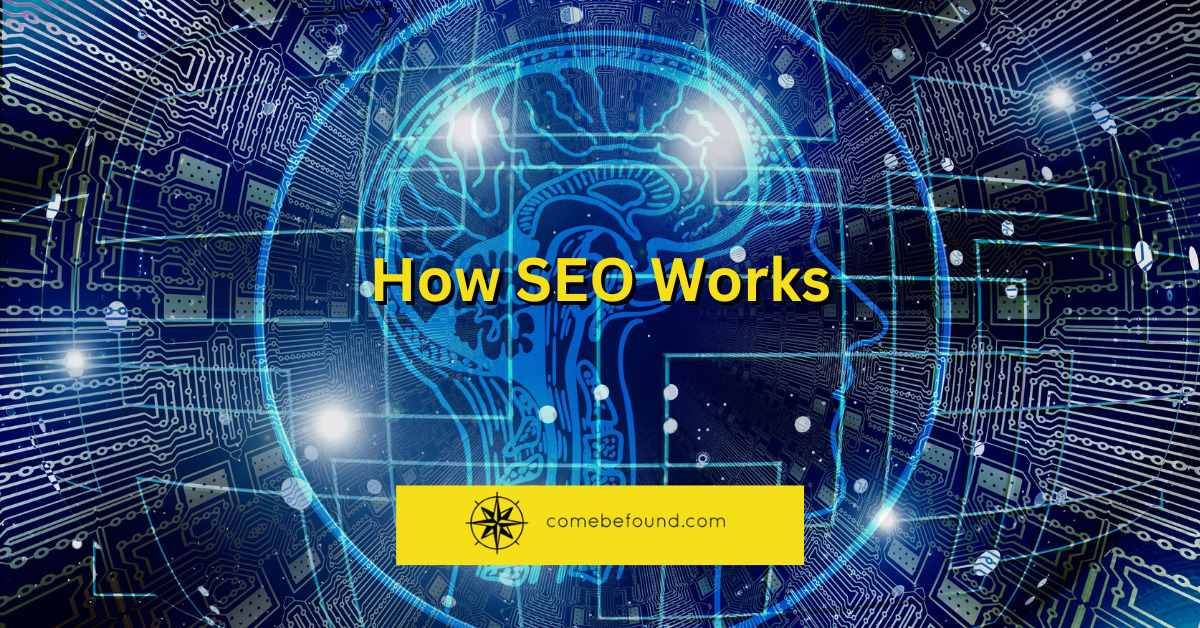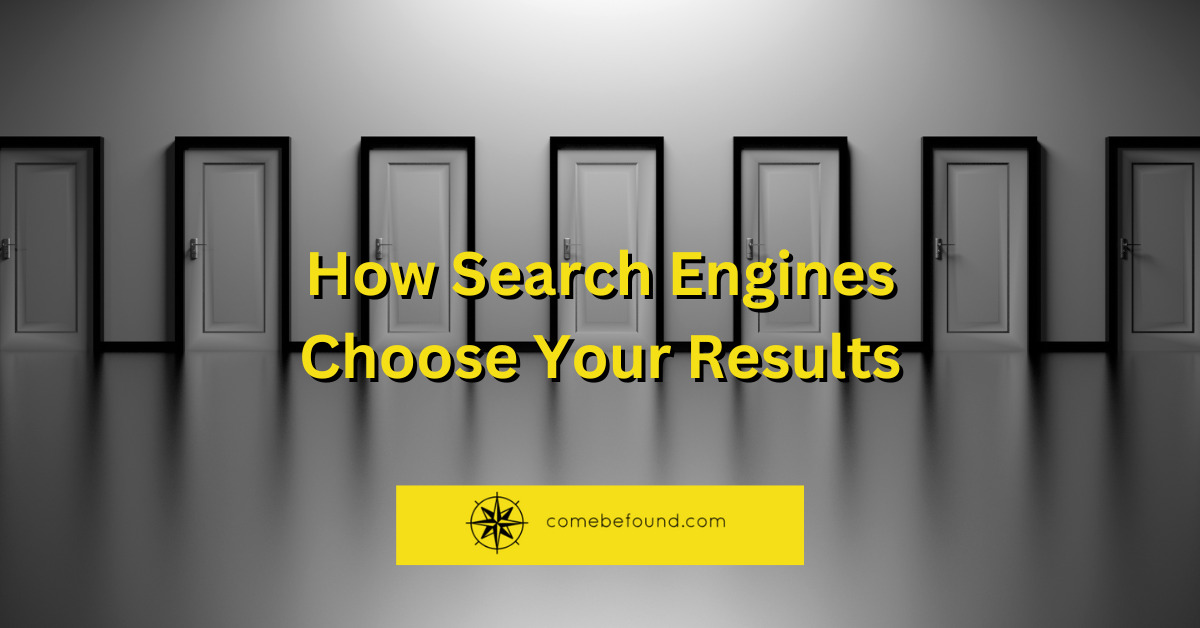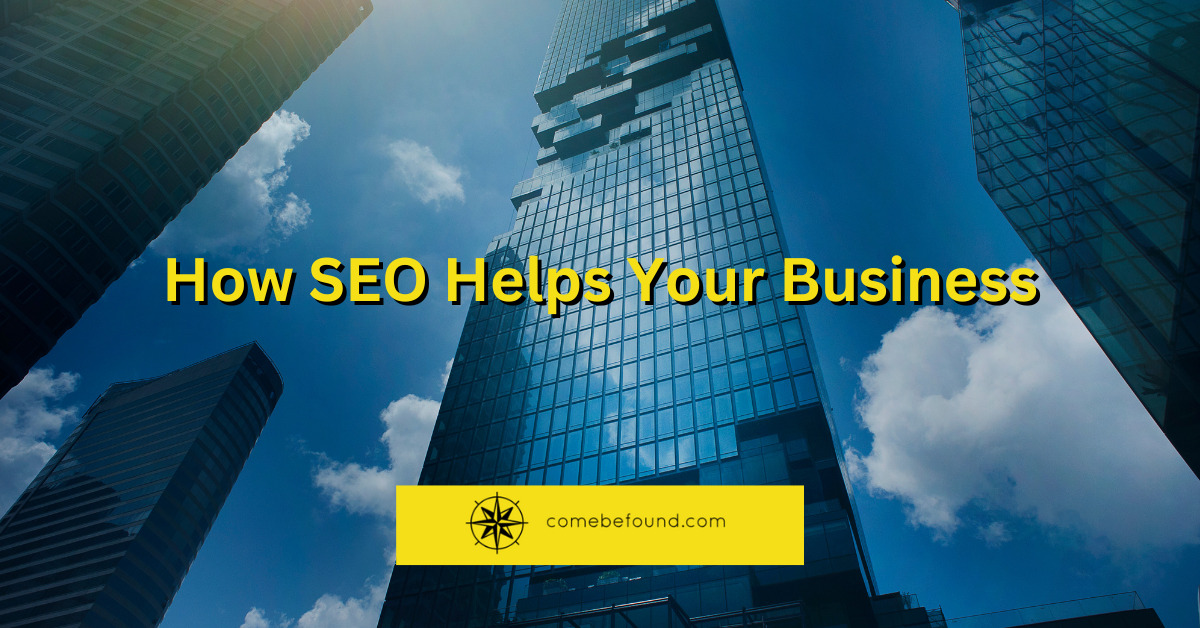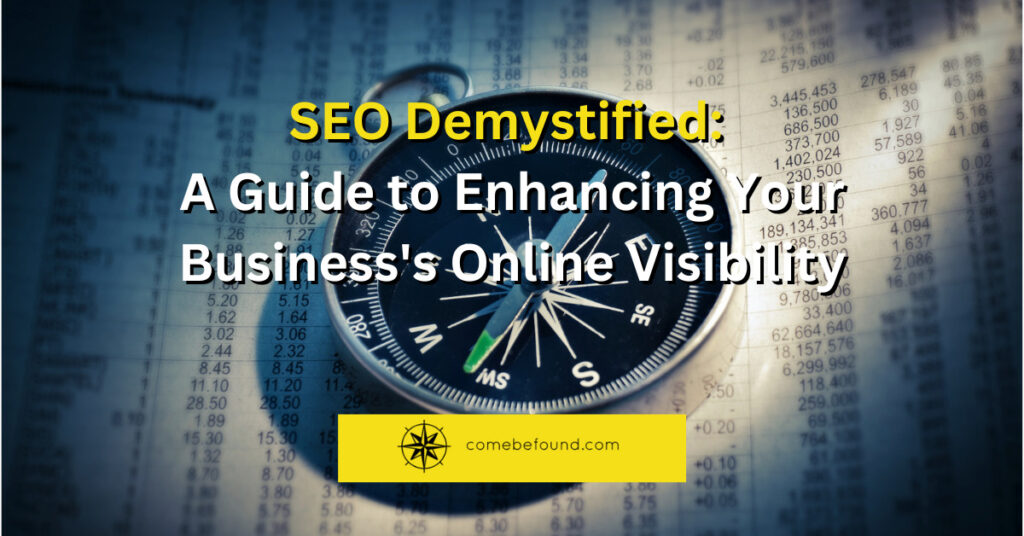Search Engine Optimization (SEO) is a relatively simple concept: getting your brand and content out in front of as many people as possible by appearing higher and more often in search results. It does, however, consist of technical complexities that touch everything from graphic design, photos, videos, web development, and, of course, content and copywriting. Ask 100 people in the SEO community or 100 SEO agencies a question like, “What is the best length an article or post should be?” and you are likely to get many different answers. However, one of them most likely will be “it depends”!
Because of that, SEO tends to be somewhat of a mystery. And mysteries are usually not something that you can base some of your quarterly budget on or use as a justification for an invoice. The purpose of this article is to serve as a helpful guide to demystify SEO, and help you better understand how it can enhance your business’s online visibility.
First, let’s discuss exactly how SEO works.
How SEO Works

Suppose a young person growing up in school has a close circle of friends. One is studious and is a good study partner, one enjoys sports, so they play baseball together; another takes to art and photography; and so on. Each friend does something the others don’t, and the result is a well-rounded group of close friends.
30 years later, that same young person is now an adult with a family of his own but wants to catch up with his old pals. He calls them up one at a time, and much to his surprise, they are all doing literally the exact same things as they did 30 years ago! One friend is still studying for the same test; one still goes out and plays baseball at the same local park; etc., etc.
Something is really wrong here!
Now imagine if you searched for a local restaurant for dinner and the top results were all places that went out of business long ago. Or suppose you are looking for a home health remedy for a bad cough, and your search turns up an ad from the 1900s recommending heroin!
The point is that as time goes on, people, places, technology, problems, and solutions change.
People are constantly searching for information online. Answers to questions, places to go, things to do, new careers, new clothes, new products—the list goes on and on. As of 2022, there are some 99,000 searches made every second on Google! That comes to about 8.5 billion searches every year. The results Google and other search engines display also have to change, and they must be the most accurate, up-to-date, and relevant that they can be. But you need to know that those results are not an accident or a random occurrence.
This is where SEO comes in.
Search engines have algorithms or systems that perform multiple checks to determine what is hopefully the “best” possible result for your query. That result may differ for you and someone else depending on who you are, where you are, where you are looking, and what exactly you are looking for. At this point, give yourself bonus points if you can guess where we are going next… go ahead; we’ll give you a moment.
If you guessed that the content, authority, and health of a website are also factors in what search engines look for, congratulations! You win! (The points don’t matter, but still!)
Search Engine Optimization is about getting the details right for everything that makes up a webpage; everything you can see and everything you can’t.
SEO takes your content and your experiences, formats them in a way that directly answers questions people are asking relevant to the topic, and presents that information to search engines in ways that it can then display for other users to be as helpful as possible. Pictures and videos, if relevant to your topic, can also be presented to search engines with SEO techniques that can put the visual part of your content in front of users first. And now, with the advent of Artificial Intelligence, your information can also be added to datasets to appear in generative AI responses.
The most effective content will be content that is helpful. If it is just written to game an algorithm or ranking factor, any results will be short-lived. That said, it is important to understand how search engines choose which results to display. So, let’s discuss that next.
How Search Engines Choose Your Results

For a search engine to be effective, it has to provide the most relevant and helpful results it has access to based on the query of the searcher. To do this, search engines have to have a record of what information your website, blog post, or article is about and pair that with other factors. In Google’s case, factors such as the Experience, Expertise, Authoritativeness, and Trustworthiness of the author and domain. Additionally, the search engine will periodically examine a website and its pages for new and relevant content.
For example, let’s say there is an article written in 2017 about Schwinn bikes, and you blog about your experience after buying one for your child last week; chances are that your article will have a strong possibility of leaping over that older one. Why? Consumer behavior and products change over time, so people will want to see something more recent to help them make a decision. And if you have a series of articles talking about your experiences with other Schwinn models and other bikes, that helps add to your authority and credibility.
This isn’t to say that just because an article is old, it isn’t still relevant. This is the difference between “matured” content and “dated” content. Information found in a historian’s published blog discussing World War II is not necessarily going to become “dated”. That is a well-covered event in history, so the newness of an article covering that is unlikely to have nearly as much influence as the trustworthiness of the author and source materials cited. This would be “mature” content that can be valued more for its trustworthiness and authoritativeness than anything else. “Dated” content would then refer to content that has become outdated for one reason or another; either the information is too specific to unique circumstances, technology, or information available at the time, or it simply is no longer relevant to the public. Search engines have to consider factors like these when determining what pages are still relevant and helpful.
Additionally, that article about the Schwinn from 2017 might still be on a website that is slow and out of date, lacks formatting for modern devices, and is no doubt missing important security patches. These factors make for a poor user experience, and so naturally, users are going to be drawn to newer, more recent websites. All of these factors are what SEO is about.
While these are not all the factors at play when ranking a page, the point should be clear: you need someone who understands SEO if you have a digital presence. And this is especially true for your business.
Let’s talk about what SEO can do for your business next.
How SEO Helps Your Business

Gaining an edge over your competitors is what every business owner wants their team to work towards. Getting your name, your brand, or your products and services in front of people as much and as often as possible usually means paying for advertising. And from streaming services to traditional TV, even store kiosks and gas station pumps, there is an ever-increasing list of places that have ad space you can rent. And yes, you can pay for prime locations in reserved ad space on search engines like Google and Bing.
The data consistently shows that people generally avoid ads, however. Maybe it’s because the generation that grew up when browsing the Internet was just becoming popular is so trained to avoid or even use software to block ads. Or maybe it’s because those ads come across as simply trying to sell you something rather than trying to answer your questions or solve your problem. Google Ads have also had repeated issues with malware, which certainly can cause people to avoid them.
SEO provides the opportunity for any business, no matter how large or small, to attract those searchers in the organic results.
The beauty of SEO and organic results is that they never stop working. Unlike paid ad campaigns that will suddenly cease once their budget is spent, optimized pages and content work around the clock, or at least until someone else catches up to you. As you create more content and answer more questions your audience may have, you become more of an authority and can acquire more of that digital real estate, which means getting in front of even more people. Organic results have consistently been the overwhelming favorite for people to go to when they perform a search.
Getting your brand or business into those top positions can take time, however.
Why Does SEO Take Time?
While it is true that some SEO-focused efforts can have near-immediate positive impacts, the most important ones that will have the most success will take time. Why does SEO take time? It depends on a lot of factors, but generally speaking, SEO takes time because of the way websites, search engines, and datasets all work.
If you toss a rock into a pond, the closer you are to where the rock entered the water, the sooner you see the effects. If you are on the other side of the pond, though, it takes time before the ripples make it to you. Similarly, changes to your website and content are immediate for current visitors, but it can take time for search engines and other points of interest to get the signal that a change has been made. And potentially, some of the initial time may just be spent by the SEO fixing issues, so you must measure “success” appropriately. But remember: the best content won’t matter if your domain is misconfigured and Google can’t see it.
Next, let’s talk about some of the typical services you can expect an SEO technician or agency to provide.
What are Typical SEO Services?
SEO services can be anything that relates to optimizing the content you have on your website, your professional profiles, streaming channels, or even your business’ profile. Everything that can appear as a search result or a chat answer bot (more on that in a later article!) can and should be optimized so as to appear as often as possible in as many ways as possible. That said, the typical SEO services you should expect to find most agencies and experts offering are:
- Keyword Research
- Content Development
- Copywriting
- Reputation Management
- Competitor Research
- On-Page Optimization, Reporting, and Auditing
Google Search Console and Analytics Management should also be included, as should any Pay-Per-Click ad management services you or your business may need.
One comment about PPC, though: for better or worse, anyone can manage your PPC campaigns. In fact, with the availability of AI tools now, you can just let the campaign platform suggest your words and phrases if you want. But if your content or website doesn’t match your campaign, it’s just lipstick on a pig at that point. Like AI, PPC is a tool that SEOs can use to help with short-term goals; it isn’t a solution for long-term success.
How Does SEO Work with Other Forms of Marketing?
SEO needs to be an integral cornerstone of your business’ overall marketing strategy. SEO needs to be more than just one necessary component of your marketing; it is one of the most effective means for any business of any size or any entrepreneur with a new idea to extend their reach. Providing customers with the answers to the questions they ask about your products or services is one key aspect of this. Having users and current customers reinforce your brand’s reputation with reviews and testimonials about their experiences is also a component of SEO and can be invaluable. In a world where honesty and truth are harder and harder to find, reading genuine feedback and experiences from other people is how many people make their buying decisions today.
SEO is not just about traffic and click-thru-rates; it’s about creating cohesion across all your marketing efforts to generate a consistent authenticity, tone, and message for your audience. Providing your marketing team feedback through website analytics with traffic patterns and behaviors can be essential data to help keep your overall marketing strategy relevant.
Outlast Your Competition

As you can tell, SEO is both a science and an art. It takes the technical and breaks it down into understandable parts, and it takes what’s obvious to humans and makes it intelligible to machines and systems. It’s writing, coding, designing, and debugging all rolled into one. And it is ever-changing.
The goals of all true SEO services should be to:
1: Promote your content
2: Promote your brand
3: Establish trust and authoritativeness
4: Stay ahead of your competitors
SEO is not a sprint; it’s a marathon. If you have been promised short-term, overnight success with SEO, that is likely all the success you will get. Eventually, those results will fade due to competition catching up with you or the tactics used being determined to be less than favorable.
By following best practices, staying up-to-date with technology and environmental changes, keeping your marketing teams on the same page, and delivering quality content that is helpful and informative in a way that can be presented across all areas of digital real estate available, SEO can be the missing link to enhancing your business’s online visibility.
Contact us today for more information and to see how we can help you rise above your competition.

